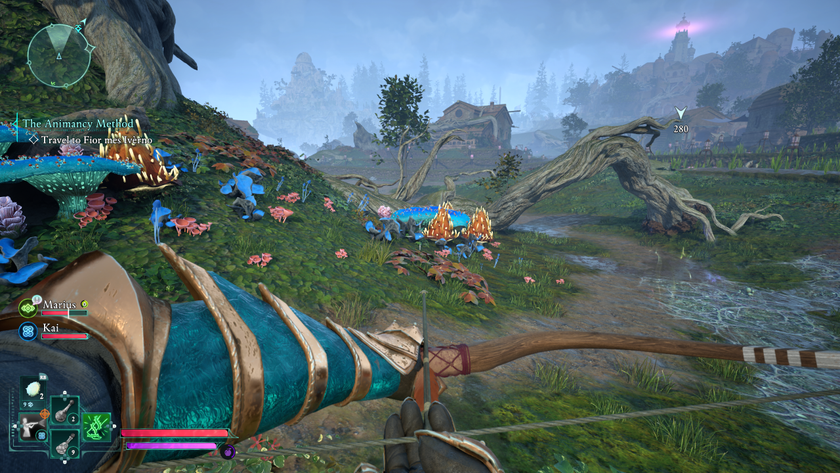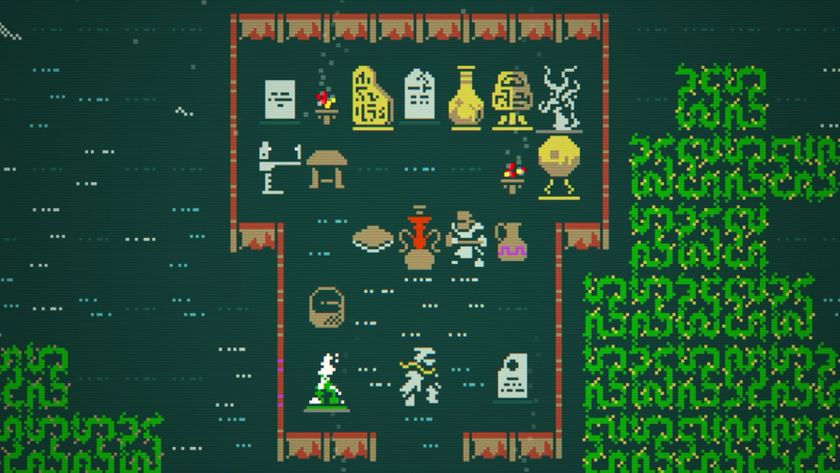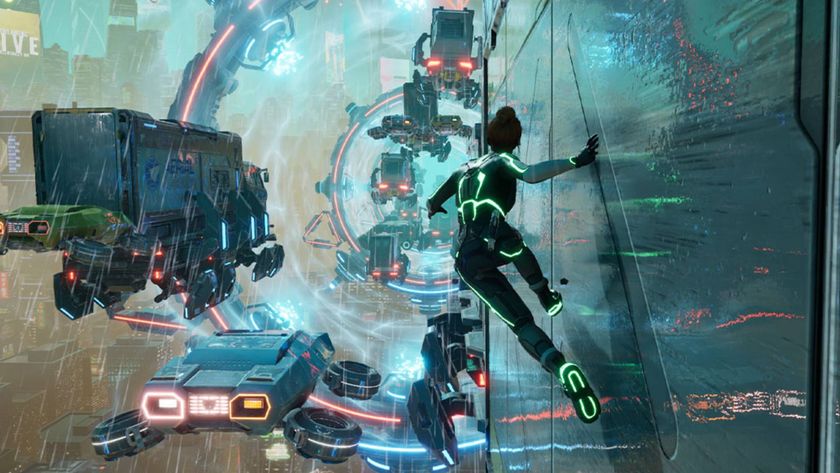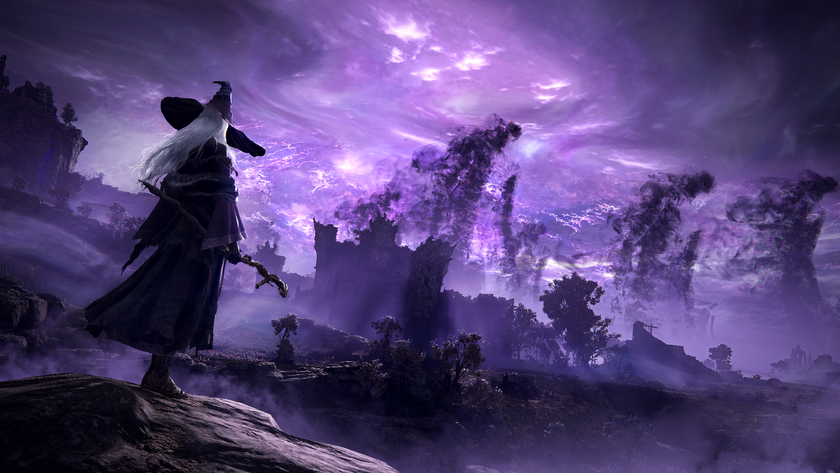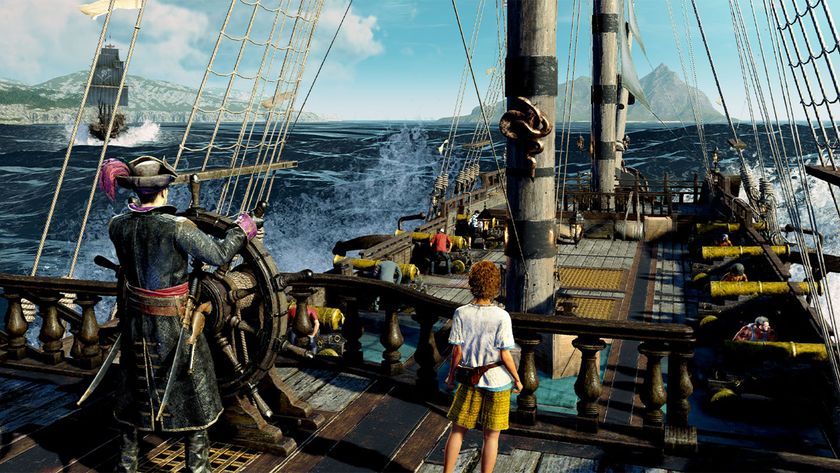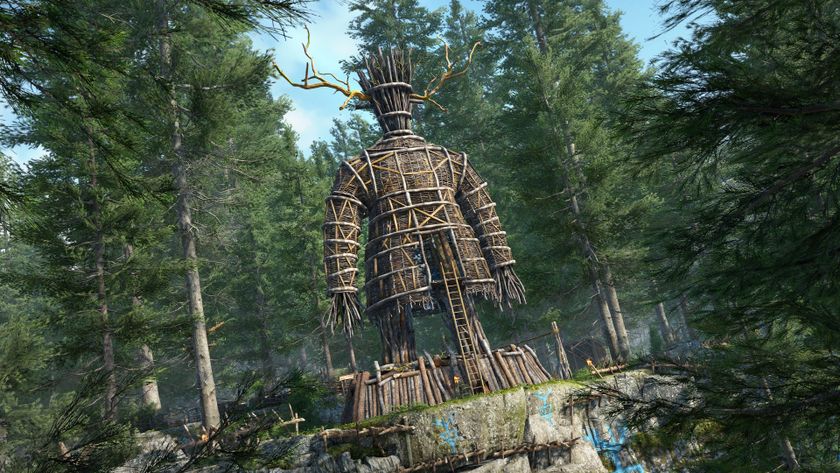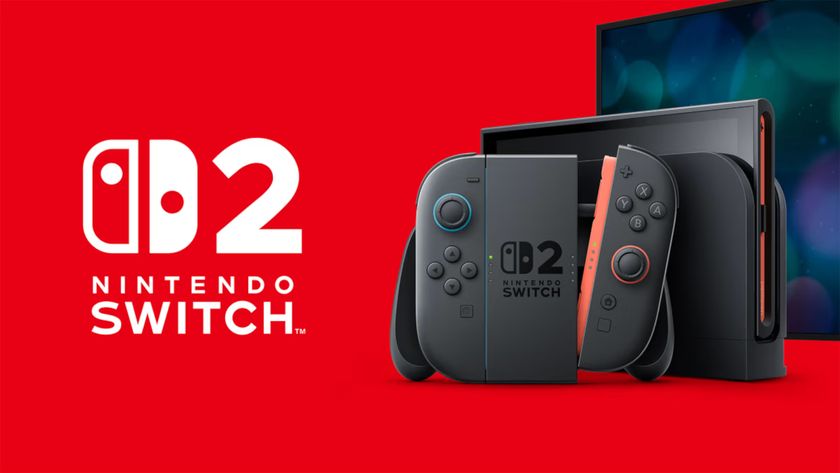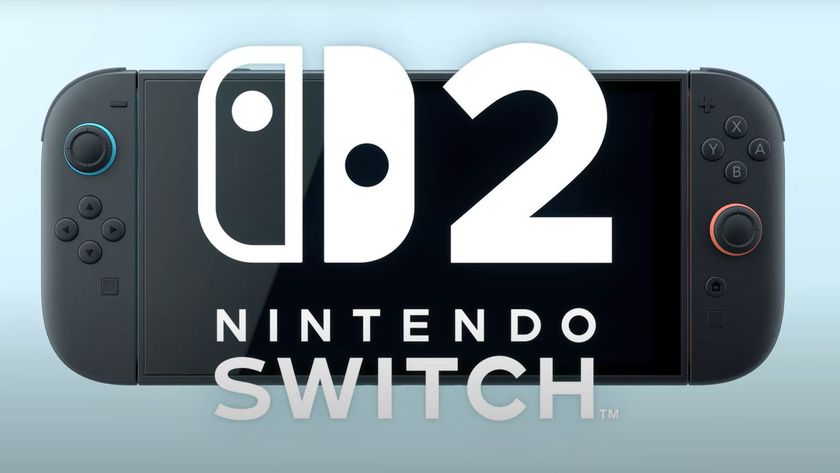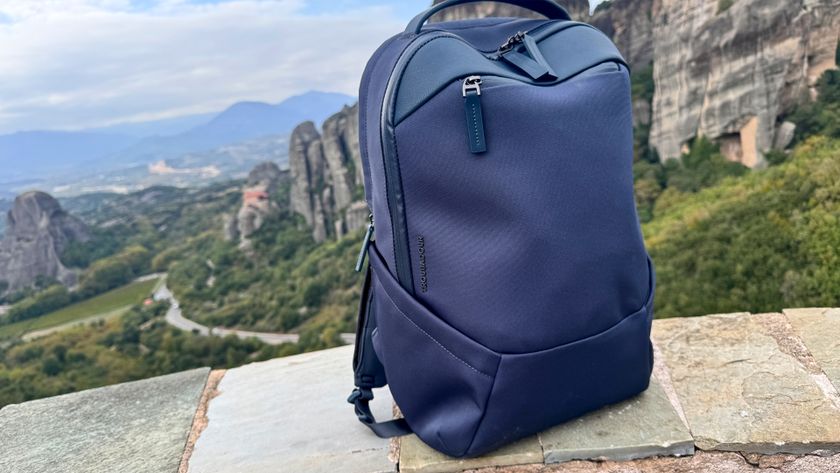The Outer Worlds lampoons unchecked capitalism — and I love it
The Outer Worlds is a good Obsidian game with a delicious helping of irony
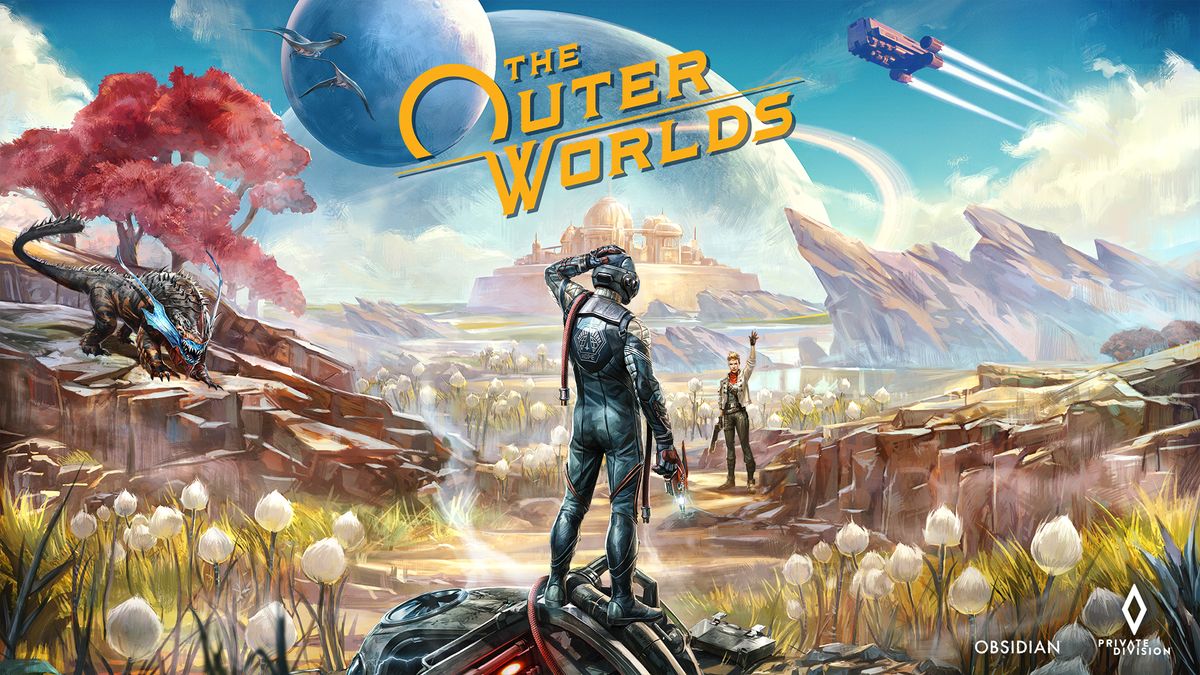
Welcome! This column is part of a regular series in which we share what members of the Tom's Guide staff are playing and enjoying right now, with an eye towards helping you find great games that you may have missed. Don't miss our recent column on why you should play Crusader Kings 3.
The Outer Worlds is probably one of the most ironic games I've ever played, but in the best way possible. I've long been a fan of Obsidian, a studio that's mastered the RPG genre. From Star Wars: Knights of the Old Republic II (the best Star Wars game, fight me) to Fallout: New Vegas and Pillars of Eternity, Obsidian knows how to tell a good story.
So when The Outer Worlds came out in 2019, you can bet that I was excited. Having just come off finishing Tyranny for the first time, I was ready to experience a new Obsidian adventure. This time, I'd leave high fantasy behind to take to the stars.
From the moment you start out, The Outer Worlds goes out of its way to smack you over the head with its message. Humanity has colonized a new star system called Halcyon, and massive megacorporations run the place. The Outer Worlds is an over-the-top commentary on — and poignant criticism of — unchecked capitalism. The game makes this abundantly clear throughout its entire runtime.
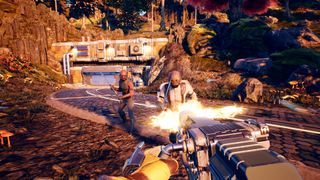
The Outer Worlds features Obsidian's typical witty writing, some endearing party members and good RPG mechanics. I also find myself drawn to it because it's effectively a spiritual successor to Fallout: New Vegas, which is my favorite Fallout game ever. (Now that Microsoft owns Obsidian and Bethesda, maybe we'll get a New Vegas 2? I digress.)
That little tidbit it what makes The Outer Worlds so ironic. Here's Obsidian lambasting unfettered capitalism and massive corporations — and now one of the biggest corporations in the world owns the studio. Granted, the game was in development before Microsoft bought Obsidian in 2018, but I find it delightful all the same.
Telling an engaging story
The setting of The Outer Worlds isn't all that original. Humans discovered a means of faster-than-light travel, and set off to colonize the stars. The game takes place in the system of Halcyon across a variety of different worlds and installations. From the hostile Monarch to picturesque Terra 2, The Outer Worlds has plenty of variety to go around. I've never finished the game and I just restarted, but I'm almost 15 hours in and I'm far from bored.
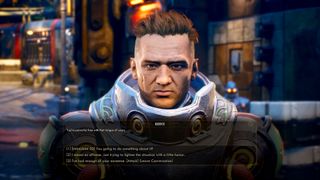
You play as the captain of the Unreliable as you battle the corporate powers-that-be. Quests and factions all vie for your attention, when you're not enjoying the companions you pick up along the way. Each of these characters has a questline for you to embark on to learn more about them.
Sign up to get the BEST of Tom's Guide direct to your inbox.
Get instant access to breaking news, the hottest reviews, great deals and helpful tips.
The set pieces are enjoyable enough, but The Outer Worlds proves itself as an Obsidian title in its writing and delivery. Megacorporations run the Halcyon colony practically unchecked, leading to hilarious and ridiculous living conditions for the common man. The Outer Worlds takes every corporate joke and criticism, and runs with them.
The subjects of Halcyon are downtrodden slaves to the machine, with horrible working conditions, long hours and life that sounds eerily like the stories we've read about the Industrial Revolution and its horrors.
This is what makes The Outer Worlds stand out. It doesn't just criticize capitalism; it uses humor and hyperbole to show a dystopia where corporations are left to regulate themselves — and we can all guess how well that would go. "Capitalism is bad" isn't the message of the game, but rather "anything taken to its extreme is bad." Remember that moderation is often what we should strive for.
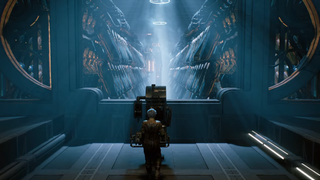
Many of the people of Halcyon who have rebelled against their corporate overlords swing the pendulum so far in the other direction as to become parodies themselves. And that's how humans work. We hate something, so we go to the far opposite end of the spectrum. You can see this throughout history, and you might know of some personal examples.
The Outer Worlds isn't just about its commentary. The story itself is quite enjoyable, too, with great dialogue and characters. You might have heard of Parvati, the adorable asexual engineer. She's got one of the best companion questlines I've ever played in a game, just because it's so darn cute. I always have her in my party because I love her dialogue so much.
What I enjoy about The Outer Worlds is how well everything meshes together. The story keeps me interested, the characters alleviate some of the downright depressing worldbuilding, and the message, while blunt, tries to offer legitimate commentary on its subject matter. I wouldn't say The Outer Worlds has the best story I've ever played, but I think that all of the game's writing elements work well.
Showing up with solid RPG mechanics
A great story is part of a great game, but bad gameplay can hamper the experience. Fortunately, I don't think The Outer Worlds struggles in this area. This is a sci-fi RPG, so there are a lot of guns. There are far better first-person shooter titles out there, but The Outer Worlds is serviceable. I haven't found myself begrudging every combat encounter as I have with other games (including some Obsidian ones).
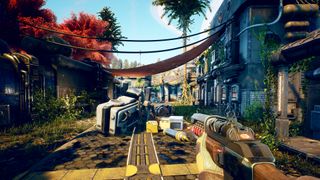
There are also a lot of stats and some perks to invest in. There's a generous helping of combat and charisma characteristics to diversify your build. For me, I put a lot of my points into my dialogue skills, since I get a lot of satisfaction from passing speech skill checks and solving conflicts that way. But for combat, I rely mostly on stealth and long-range gunfire. (Why is that stealth/ranged builds are so overpowered in video games? Skyrim and Cyberpunk 2077 come to mind.)
The Outer Worlds isn't revolutionary, but it takes what we know about RPGs and runs with it. There isn't truly deep customization, but you can make some powerful builds, just like my stealthy-persuasive sniper character. I don't recommend a melee build, though, since the close quarters combat isn't all that good. At least Obsidian got the gunplay right.
Art is a commentary on society
The best thing about art as a whole as that we each get something different out of it. Some works are pure escapism; others serve to explicitly call out issues in our society. In the end, however, art is always a commentary on something, colored by the artists' biases. Even escapism has something to say. Sometimes it's just "you should take a break from the real world for a minute."
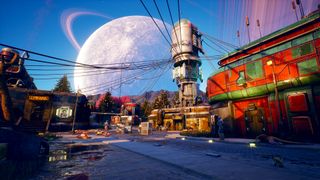
The Outer Worlds doesn't pull punches with its commentary, nor would I want it to. That's what I love about dystopian fiction. Things may be truly awful, but I find it cathartic all the same to see that I'm not the only one who feels a certain way about a given topic. Once you see past the over-the-top and snarky delivery, The Outer Worlds' message is a sympathetic one.
The Outer Worlds also has two DLC packs that I can't wait to try, after I get through the generous helping of side quests in the main game. This is one of those titles where the time has flown by, and I can't wait to dive back into Halcyon with the crew of the Unreliable.

Jordan is the Phones Editor for Tom's Guide, covering all things phone-related. He's written about phones for over six years and plans to continue for a long while to come. He loves nothing more than relaxing in his home with a book, game, or his latest personal writing project. Jordan likes finding new things to dive into, from books and games to new mechanical keyboard switches and fun keycap sets. Outside of work, you can find him poring over open-source software and his studies.
